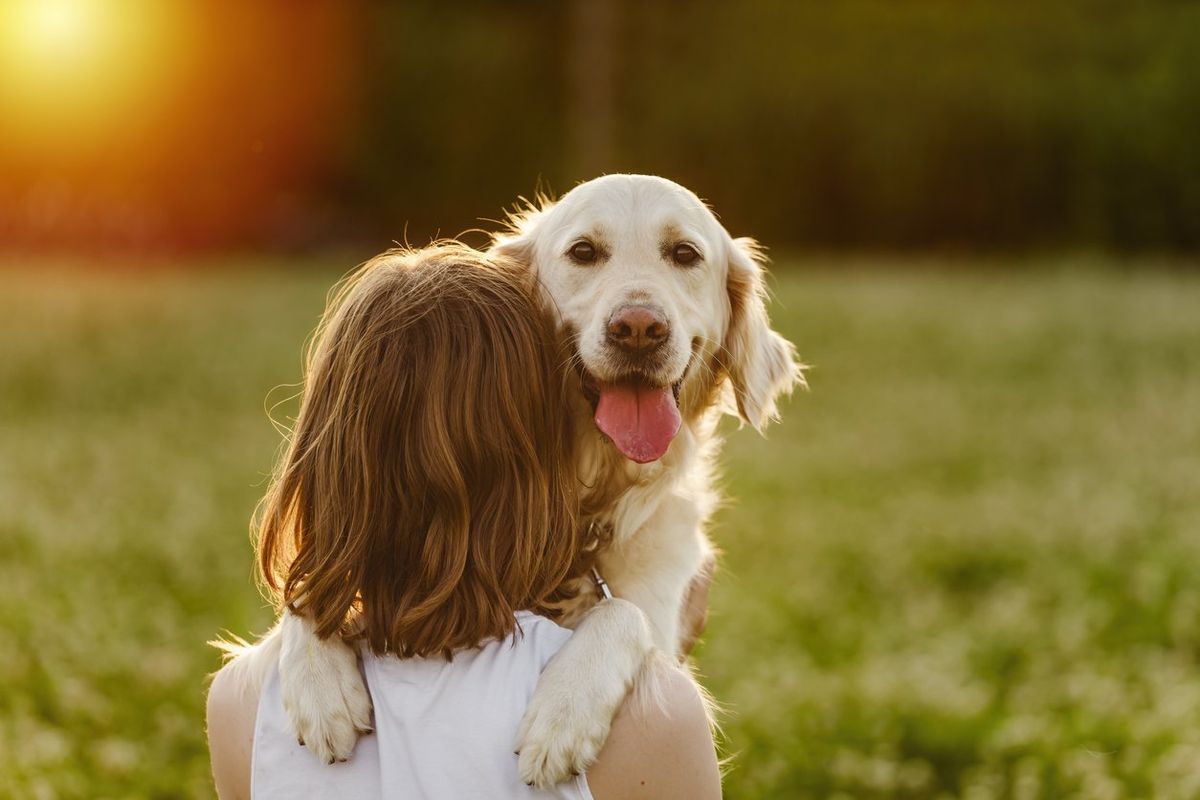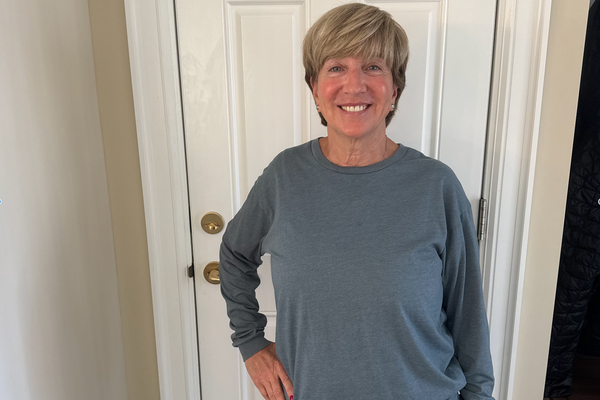I hate goodbyes. I’d rather make a quiet exit from a room than go through what to me is a somewhat awkward and difficult process. But I realize that slinking out is considered poor form; so I steel myself for the moment, convincing my better half that it’s the right thing to do, and go through the motions. And invariably, after I do, I feel a mixture of relief and vague satisfaction.
Last week was the tipping point for my dog Chloe. She was rapidly deteriorating; a series of seizures, followed by confusion and endless sleepless nights when she'd pace the floor, confused and troubled, knocking her nose into things as if searching for the answer to alleviate her discomfort.
Oh, if only dogs could talk.
In the past few years it had been easy to ignore Chloe's advancing age; unlike older people who often times will shrink, lose muscle mass, turn gray, get wrinkles, lose their balance and the spring in their step, my dog did none of these: people would often ask me how old my 'puppy' was. The spark, that lightness of being, her combination of naiveté and awareness that she had as a pup was still very much evident. Although she sometimes hesitated when faced with a steep flight of stairs, she mastered the ups and downs, just a tad slower than before. Rather than greet me at the door, I came to know where to search for her - in that same corner spot she'd been napping in for years. I'd bend down and gently coax her out of her deep sleep – but not before closely observing her to make sure she was still breathing - to let her know I was home so she wouldn't startle.
Last week when I brought her to the vet after an especially tough and sleepless night, I was finally ready to hear what he had told me many times before.
"There’s really not much we can do," he said, a little too matter-of-factly for me. But then again, I understood. It was time to say goodbye.
I had one day to prepare for Chloe's euthanasia. I made the decision to leave her at the vet; I feared that once home, she'd rally, tearing the rug up as she rocketed to the kitchen cabinet where we stored her treats; perching atop the couch cushions to watch for the mail truck or the occasional squirrel dashing by. I knew she'd bark when she wanted a treat, that she'd scour the kitchen floor for fallen crumbs. I was certain that she'd linger outside for her last walk, especially if the night air was warm and alluring, to listen for the crickets in the distance.
And I knew if she were home I'd never bring her back to the vet the next day.
So, I spent part of that day before busy-ing myself with errands and work; another part saying goodbye and rerunning Chloe's long and wonderful life in my head, remembering and being grateful for all she has added to mine. And when it got too painful to think, I did something else I rarely do – I reached out and asked for help. I called and emailed everyone I knew who had a dog. I asked them for tips – anything that they could tell me that would make it easier to let go. And to my amazement, people responded in droves. Some checked on me throughout the night and into the next day, others shared their own stories; many even cried in solidarity.
I had time to process my grief, though a short week later, I'm learning that the grief shadows me in quite a similar fashion as Chloe did; it's always by my side, touching me at unexpected moments, chasing me until it catches me and forces me to look it squarely in the eye.
And many friends have recently lost their pets, too. I think it's a midlife rite of passage; we added pets to our growing families and watched them grow up alongside our children. Or for those of us who remained childless, they were our children, cared for with the same love and devotion. Now the too-short life of our pets is ending when our new life as empty nesters – true empty nesters – begins.
I have a very wise friend and fellow blogger, Roxanne Hawn, who has helped me tremendously through this process. Roxanne writes the award-winning blog, Champion of My Heart Roxanne graciously answered all my questions, although by the end of the process she admits to being in tears, too.
Q. How do you deal with the grief and pain of losing a pet?
A. Toss aside preconceived notions about grief, and ignore any naysayers you find. The grief associated with the death of a dog is just as real, just as painful. It’s important to give yourself time and space to feel whatever you feel. I've lost dogs far too early from cancer. I've lost dogs after a long, happy life. While it's a tiny bit easier to accept the passing of an elderly pet, loss is loss.
Q. You’ve owned- and lost – a lot of dogs. What helped for you?
A. One strategy I've used involves getting a special candle—typically in some long-burning, safe container—and burning it for a certain period of time each day. While the candle is lit, allow yourself to feel just as rotten as rotten can be. Sob. Wail, if you have to, but really feel your grief. It isn't that you cannot feel sad during the rest of your day, but having a ritual around your grief can sometimes keep it from bubbling up at inopportune times—like in meetings at work or while picking out fruit at the market.
Q. I found that reaching out to other people really helps.
A. In this age of social media, don't hesitate to post a photo and note online so that your friends and family can provide support and love. Or think about asking friends and family to help you raise money for a local animal shelter in memory of your dog.
Q. What other things – perhaps things people don’t normally think of – might be helpful?
A. As you process your grief, I think it helps to formalize your memory process. That might mean making a dog memorial scrapbook with favorite pictures and documents. It might also mean creating a memorial video tribute with photos, video clips and favorite music. Particularly in cases where a dog is terminally ill and time is short, I encourage people to live each moment in gratitude. Every day is a gift. Sometimes every hour is a gift.
You might also want to read:
Pet a Dog. Lower Your Blood Pressure







